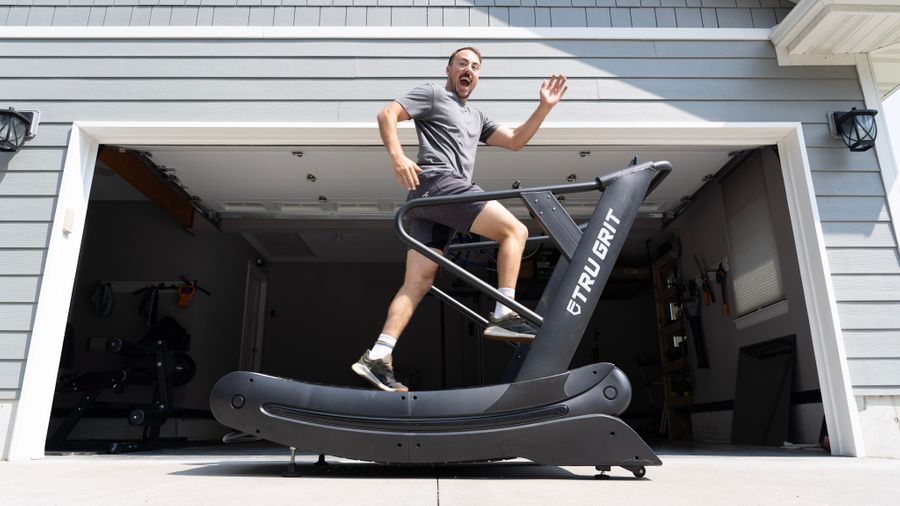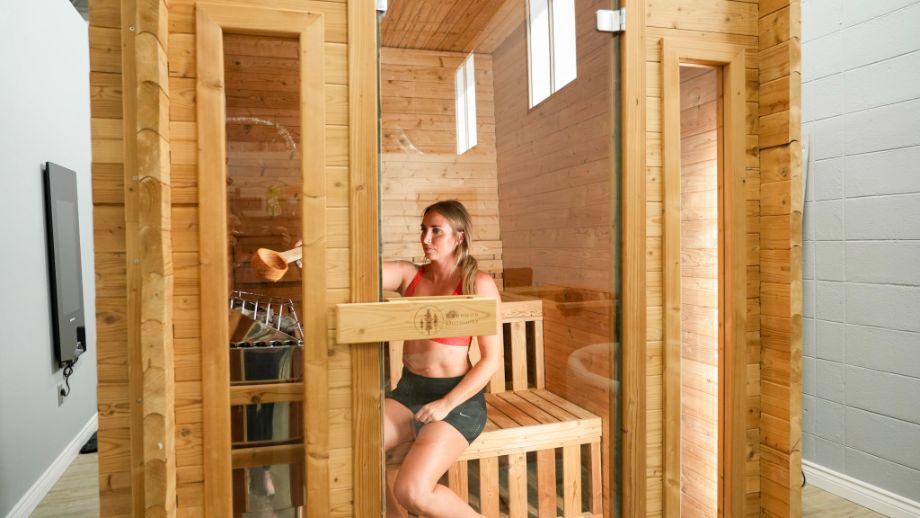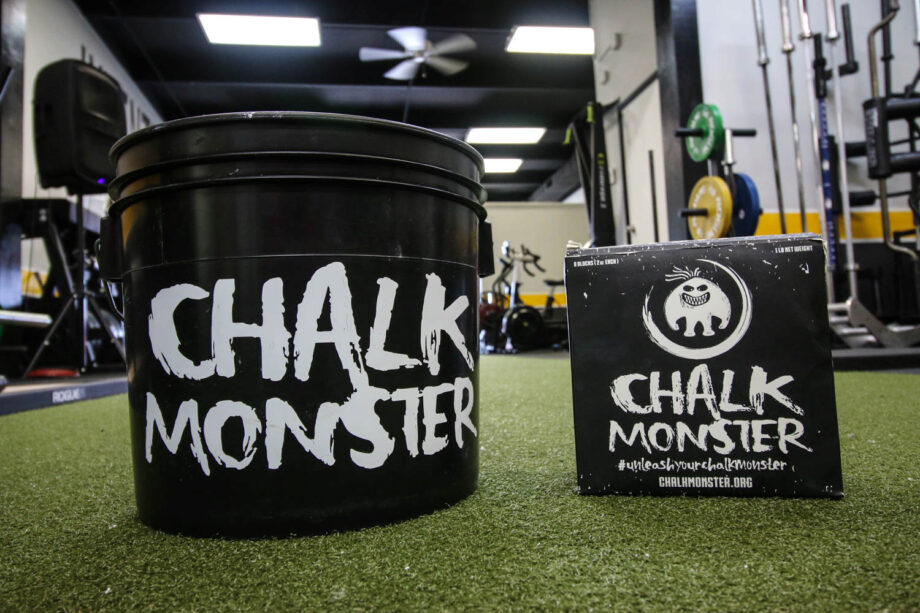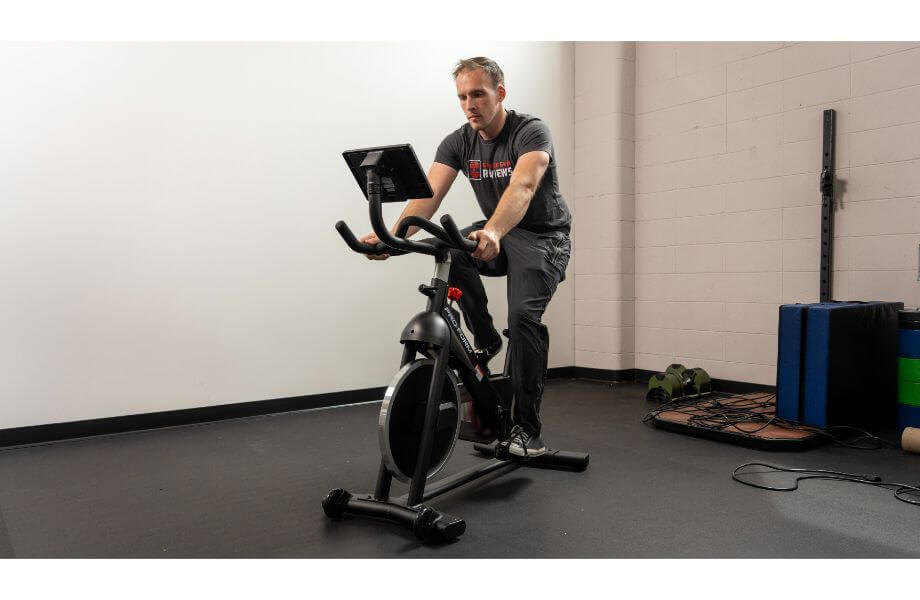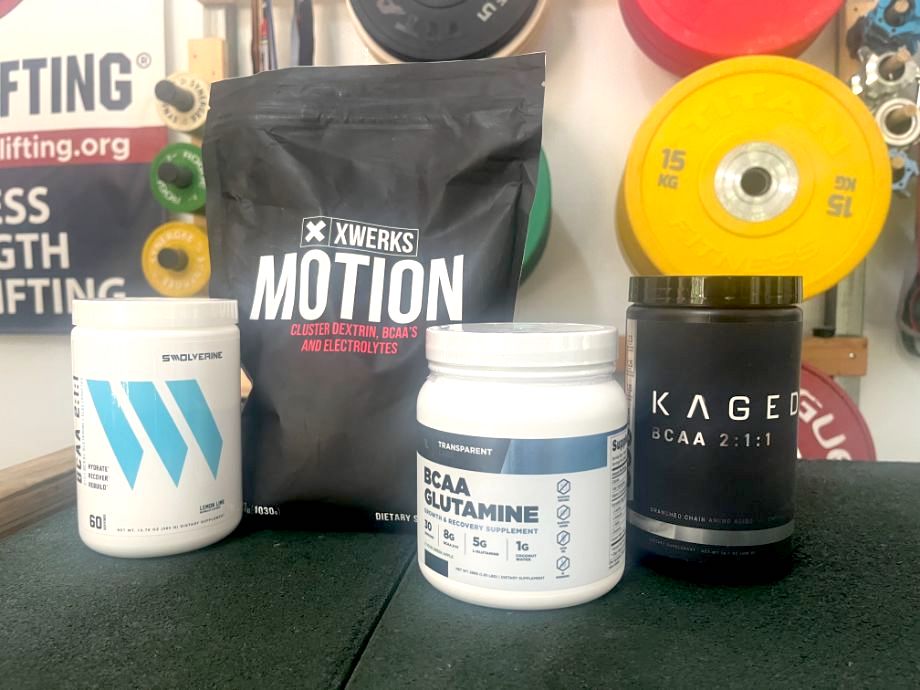You’re dressed for success, strapped on your running shoes, and fueled up and ready to run faster. The weather has cleared up and you have mapped your run. You have everything planned out except for one thing: What should your running heart rate be?
Now you’re stumped.
Your running target heart rate usually depends on the length, and intensity of your run, and the goals you desire from your running workouts. Are you running a short distance? Then it is okay to push yourself a bit. Are you preparing for a marathon? Then you might want to keep your heart rate lower to not wear yourself out too early.
I’m a certified personal trainer who knows the ins and outs of heart rate as it relates to your physical training. Here, we’ll discuss all factors so you can get the best from your running workouts. Ready to run? Let’s roll.
RELATED: HIIT Treadmill Workouts
Medical disclaimer: This article is intended for educational and informational purposes only. It is not a substitute for health or medical advice. For medical advice, contact an appropriate healthcare provider.
What Does Heart Rate Mean?
Heart rate is the number of beats your heart makes, and this is usually measured by beats per minute (BPM). Your heart rate can be measured and felt on your wrist, side of your neck, back of your knees, and other places on the body where the artery is close to the surface of your skin. Your resting heart rate should be between 60 and 100 BPM if you’re healthy. Measuring your heart rate gives you an indication of your health and the intensity of your running workout.
Factors that Affect Your Heart Rate
Before going into factors that affect your heart rate, here’s a quick lesson on the heart: The heart is a special type of muscle called the cardiac muscle, or myocardium. It is unlike other muscles in the body because the heart is an involuntary muscle, and it works similarly to other muscles except for one important difference: Electrical stimulation in the form of a cardiac action sets off a cascade of events that makes your heart beat as fast or as slow as it does.
What does this mean for you? It means that there are other factors besides exercise intensity that affect your heart rate. And they include:
Age: Getting older causes changes in the heart muscle and blood vessels. Your heart typically will not beat as fast in times of physical activity or stress as it did when you were younger. However, age does not play much of a role in changing your resting heart rate or your average heart rate.
Weight: The heavier you are, the bigger strain on your heart to get the blood flow to your working muscles. Given an equal intensity, a heavier person tends to have a higher heart rate than a lighter person.
Current Fitness Level: Also known as aerobic capacity. Doing regular cardio improves the efficiency of your heart and blood vessels to deliver blood to your working muscles. The fitter you get, the more blood your heart delivers per beat, so in turn, your heart doesn’t need to beat as fast. (Also, check out does cardio build muscle here.)
Family History: If you have a family history of heart disease or heart health issues, it may increase the likelihood of having a cardiac event. If your heart has to work harder to pump blood, your heart rate increases.
Environmental Conditions: Higher humidity and temperatures or drastically low temperatures either raise the heart rate to keep warm, stay cool, or stay alive.
Medications: Medical conditions that require medicines like beta blockers may slow your heart rate, or something like a high dosage of thyroid medication may raise it.
Stimulates and Drug Use: Things like coffee, alcohol, and smoking have a habit of increasing your resting heart rate.
Stress and Anxiety: In times of stress, your body releases adrenaline, a hormone that temporarily causes your heart rate to speed up and your blood pressure to go up.
A Look at Heart Rate Zone Training
Heart rate zones are ranges of heart rates that guide the intensity levels you choose to train at. Rather than using pace per mile or R.P.E to measure your intensity, heart rate zone training relies on your BPM for how fast or how long you run. Target heart rate zones use five different zones based on your maximum heart rate.
Here are the five zones with the corresponding max heart rate (MHR)
- Zone 1: 50 to 60 percent of MHR, which is great for warmups
- Zone 2: 60 to 70 percent of MHR, ideal for longer training sessions
- Zone 3: 70 to 80 percent of MHR, also known as a “tempo” zone
- Zone 4: 80 to 90 percent of MHR, or where your lactate threshold is
- Zone 5: 90 to 100 percent of MHR, your anaerobic limit
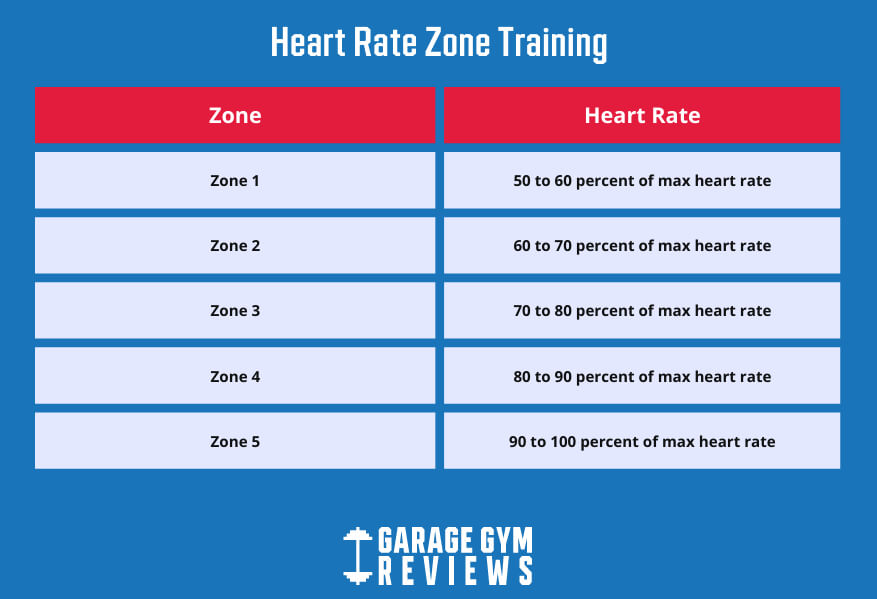
In the first three zones, you’re working in are the aerobic zone, which means you are using oxygen and fats to supply your energy. Zones 4 and 5 are more anaerobic zones where the oxygenated blood supply cannot get to your muscles fast enough, so you’re using glycogen stored in your skeletal muscle for energy. Depending on your goals for your running workouts, you will need to spend time training in different zones.
If you’re a sprinter, for example, you want to spend more time in Zones 4 and 5 with appropriate recovery to simulate what you face on the track. But if you’re training for a marathon and having to keep a steady pace for many miles, you may want to spend time training in Zones 1 and 2.
Occasionally throwing in some tempo runs training between Zones 3 and 4 is a good idea to improve aerobic fitness, too.
If you are training for your first 5K, spending some time training between Zones 2 to 4 is your best bet.
There is an inverse relationship between intensity and distance. Long distance equals lower intensity, and shorter distance equals higher intensity. If you’re serious about zone training, investing in a fitness tracker to track your heart rate data is your best bet.
How to Calculate Your Max and Target Heart Rate
There are a couple of ways to calculate your maximum heart rate, but the easiest way is to subtract your age from the number 220. Therefore, a 35-year-old will have a maximum heart rate of 185 beats per minute:
220 – 35 = 185 beats per minute
The American Heart Association recommends exercising with a target heart rate of 50 to 75 percent as an ideal running heart rate for beginners and for what the organization classifies as moderate-intensity exercise. The AHA also suggests working between 70 to 85 percent of your maximum heart rate during higher intensity activity.
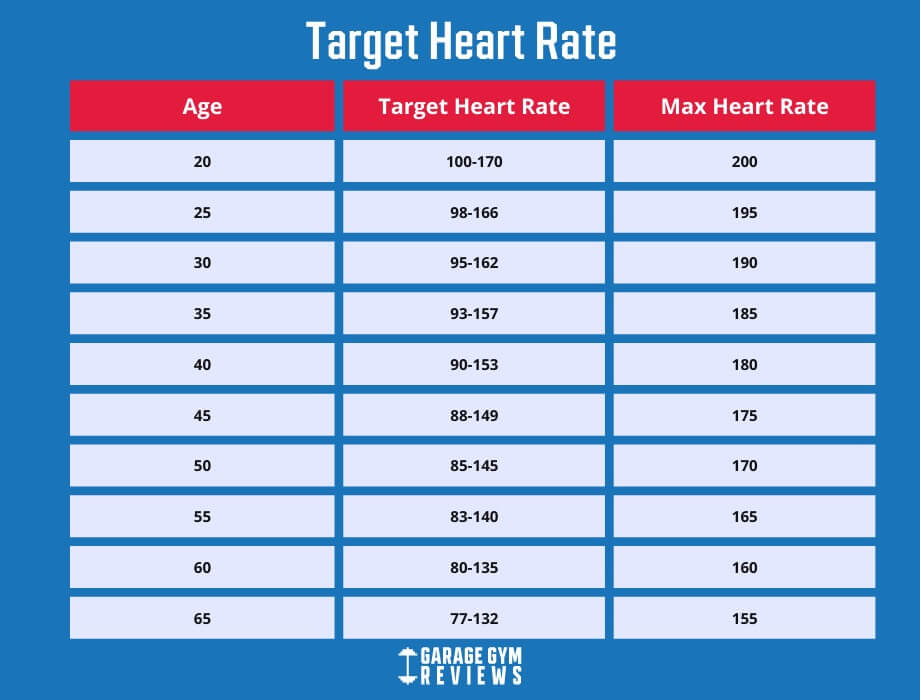
Follow the table below as a guide. However, because there are other factors at play that will raise or lower your heart rate during running, keep in mind that this is only a suggestion. It’s best to use a heart rate monitor to keep track of your heart rate. And if you’re really serious, investing in a running coach may help, too.
| Age | Target Heart Rate (50 to 85%) | Max heart rate (BPM) |
| 20 | 100-170 | 200 |
| 25 | 98-166 | 195 |
| 30 | 95-162 | 190 |
| 35 | 93-157 | 185 |
| 40 | 90-153 | 180 |
| 45 | 88-149 | 175 |
| 50 | 85-145 | 170 |
| 55 | 83-140 | 165 |
| 60 | 80-135 | 160 |
| 65 | 77-132 | 155 |
Final Thoughts
Tracking your running heart rate is a great way to measure your intensity when you run. Calculating your maximum heart rate using 220 minus your age and spending time between 50-85% of your will improve your aerobic and anaerobic fitness.
When you need to take it a step further, using heart rate zone training will help get you ready for your 5k or marathon. By investing in an HR monitor combined with some sweat equity, you will crush your running workouts.
Running Pace Calculator

Calculate Your Running Pace
Enter your stats in any 2 of the fields below to calculate the third.
Running Heart Rate FAQs
What is a reasonable heart rate when running?
This depends on your level of fitness, training time, intensity, and the distance you run. If you want to improve your aerobic fitness, spend time training between 50 to 75% of your MHR.
Is 200 a high heart rate when running?
Yes, when your heart rate increases to 200 or more, only do it for a short time or distance and then slow down. This is a very high heart rate for people at just about any age.
Why is my heart rate so high on easy runs?
This may be due to inadequate recovery between your workouts or other life factors contributing to high-stress levels. Taking a day off is advisable here to avoid overtraining.


